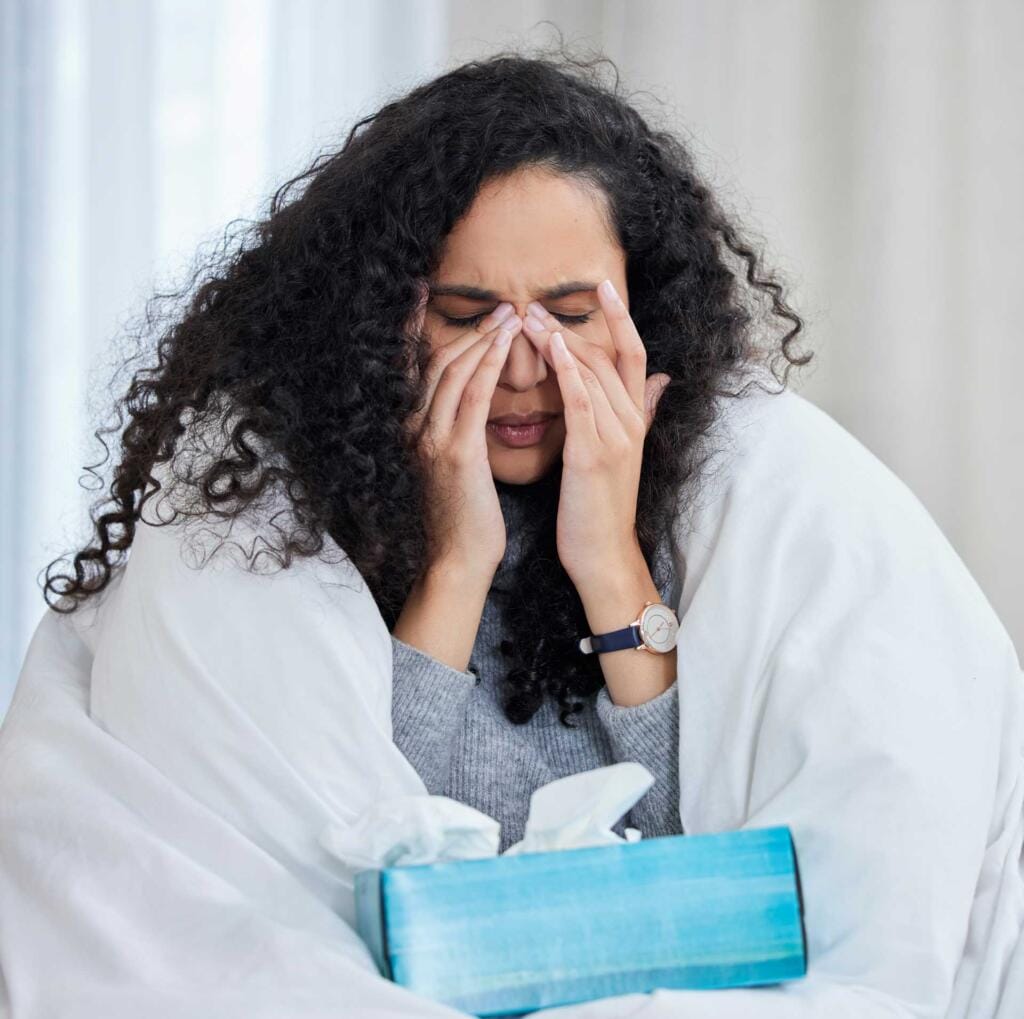The flu season starts in the fall and gains momentum just in time for the busy holiday season. While this may seem like an unfortunate coincidence, it is actually because winter weather allows for easier transmission of the virus from person to person. Scientists at the National Institutes of Health explain that a cold environment thickens the outer covering of the virus to make it more durable. This extra protection allows the flu germs to successfully complete their journey from one person to the next, unlike during warmer weather when the thinly coated virus is too fragile to spread easily.
Geography can also play a role in getting sick. In colder climates, like the northern states where the winter season can feel more extreme, outdoor time is limited and more time is spent indoors. This creates close quarters, which can increase the chances of coming into direct contact with infected people.
Despite these increased risks, you can still avoid catching the flu with a few simple precautions.
Get a Flu Vaccine
The CDC recommends that everyone aged six months and older get a yearly flu vaccine. It is preferable to get one as soon as it becomes available, although you can still derive benefit if you wait until after the onset of flu season. The vaccine is composed of several viruses anticipated to be most prevalent for the upcoming season, and resulting antibodies sometimes offer additional protection from other strains of the flu that are related to those in the vaccine. Duration of vaccine effectiveness varies visit this page according to age and health of recipient, but those with good health and normal immunity can expect their shot to last the entire flu season. While the flu vaccine does not guarantee protection from the virus, it is still the most important action against it, according to the CDC.
Prevent the Spread of Germs
Avoiding those with the flu is a logical preventative measure but it’s not the only one you can take to reduce the spread of germs. Wash your hands often, for at least 20 seconds, with soap and water or an alcohol based sanitizer. Clean shared surfaces regularly such as computer keyboards or doorknobs. Remember that intact skin provides a natural barrier against infection, so avoid touching openings such as your eyes, nose and mouth where germs can enter.
Manage Your Health
Improve your natural immunity by managing your health. Eat a balanced diet rich in plant foods for immune boosting nutrition. Reduce sugar consumption which inhibits white blood cells from destroying viruses, a process called phagocytosis. Sleep for at least eight hours each night so your body can produce enough immune building proteins called cytokines. Schedule daily exercise: Being physically active increases circulation to speed up the immune system response as well as flush out germs from your airways. Psychologists who study psychoneuroimmunology cite the link between stress and infection, so make a conscious effort to alleviate any tension or worries that may plague you.
